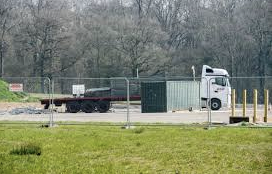Law Society Gazette
limate campaigners today hailed a ‘huge’ Supreme Court win which they claim could restrict plans for future fossil fuel extraction in the UK.
Justices ruled by a 3-2 majority that Surrey County Council acted unlawfully in granting planning permission for a developer to expand oil production from a well site near Gatwick Airport.
Allowing an appeal spearheaded by local resident Sarah Finch, the court held that the council’s environmental impact assessment should have taken account of the greenhouse gas (GHG) emissions that would occur when burning the oil produced, and not just emissions from building the wells. The proposed project would involve the extraction of oil from six wells for a period of over 20 years.
The decision turned on the correct interpretation of the Town and Country Planning (Environmental Impact Assessment) Regulations 2017, in particular the ‘direct and indirect significant effects of a project’ on the climate. The central issue was whether, when considering an application for oil extraction at the Horse Hill Well site for commercial production, the council should have required an assessment of the downstream or ‘scope 3’ GHG emissions resulting from the eventual use of the refined products of that oil.
The council insisted it had followed planning law. The High Court and Court of Appeal agreed. But in his majority judgment, Lord Leggatt (with whom Lord Kitchin and Lady Rose agreed) held that the concept of ‘the effects of a project’ within the EIA Regulations is a question of causation. He dismissed the reasoning of the lower courts that intermediate steps, such as the refining process, could break the chain of causation.
Greenpeace and Friends of the Earth intervened in the case. Mel Evans, climate campaigner at Greenpeace UK, said: ‘This is a huge win for the climate. The courts have finally recognised that the government can’t ignore emissions released by burning fossil fuels when granting drilling licences. Governments will have to confront what energy experts have long been saying: new oil and gas developments are totally incompatible with the UK’s climate commitments.
‘We now need robust government action to bring the UK’s oil and gas sector in line with our climate commitments and properly support affected workers into good, secure jobs in the renewables sector.’
Cornerstone chambers, six of whose members were instructed in the case, said: ‘The Supreme Court ruling will no doubt have significant consequences for future planning decisions concerning fossil fuel projects as well as other high carbon-emitting proposals.’




